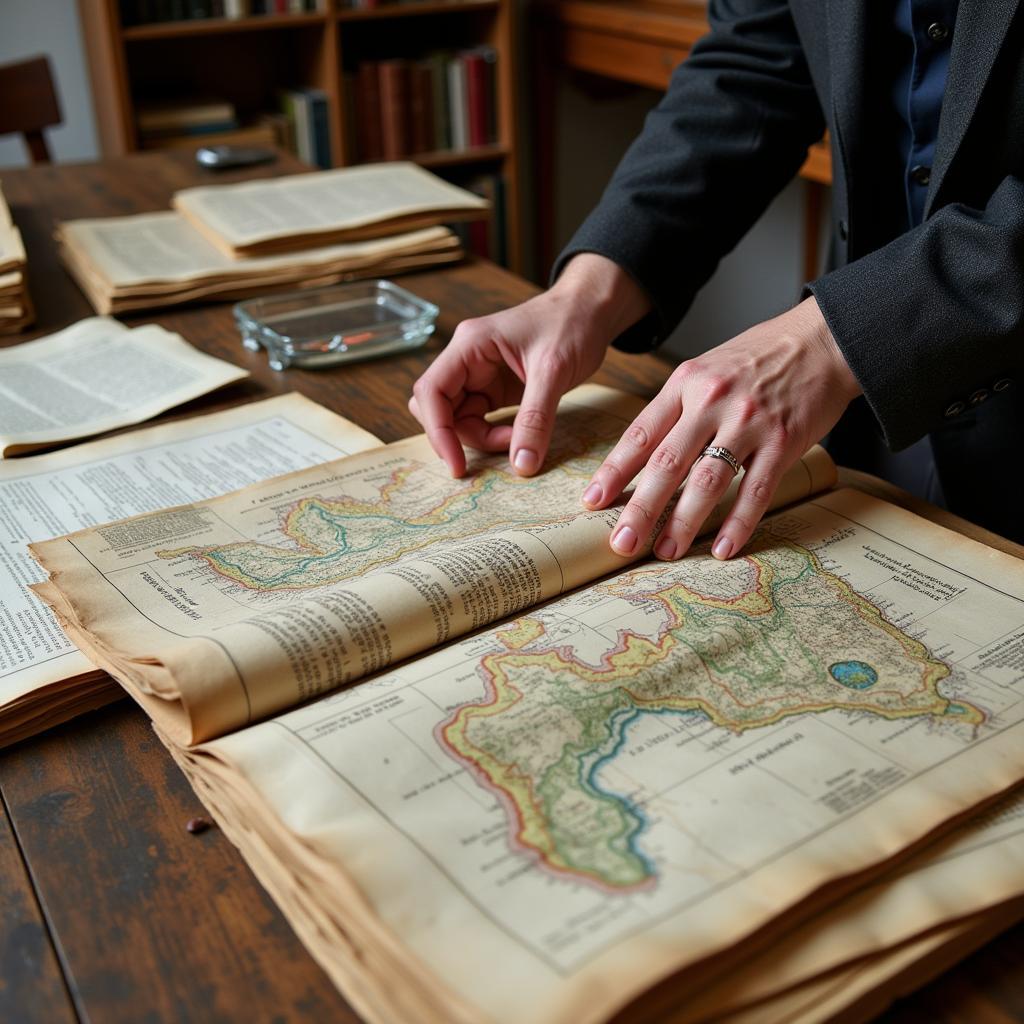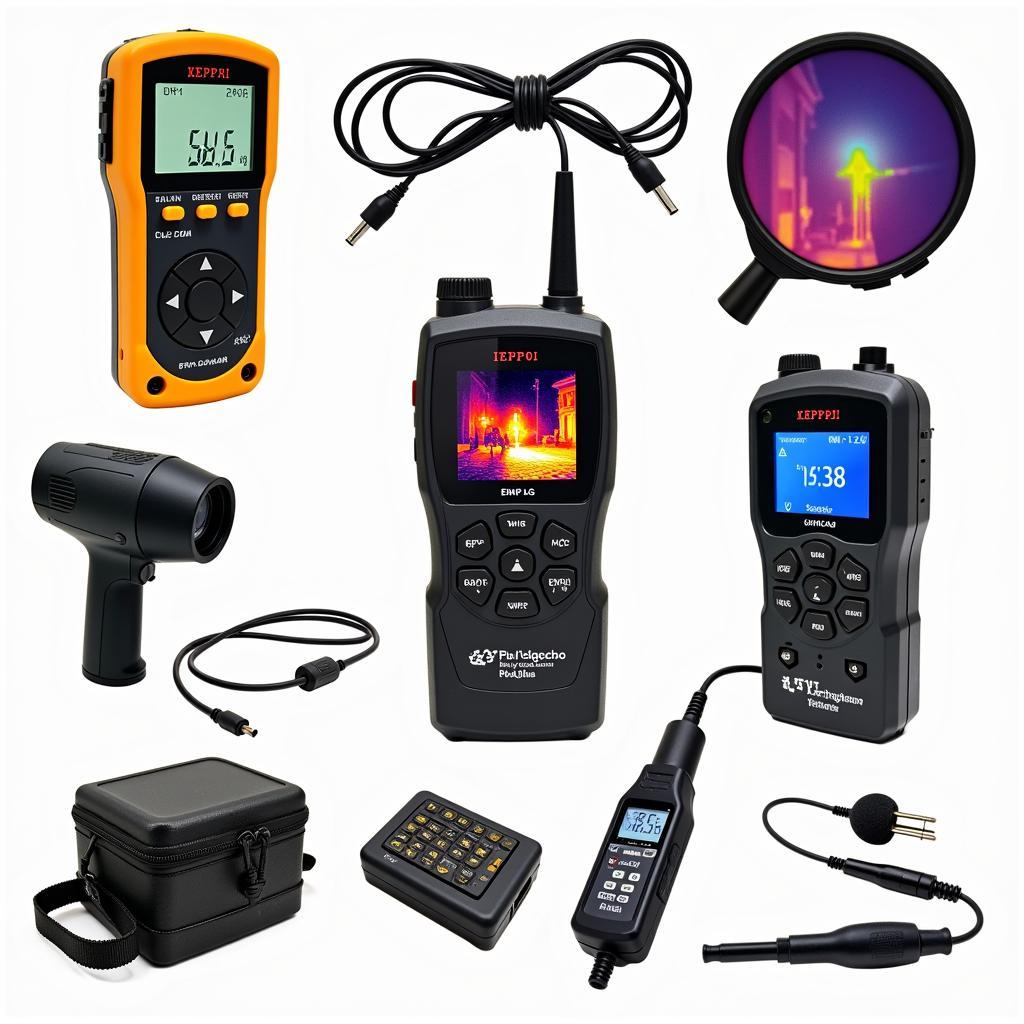Critical Thinking And Research are the cornerstones of any credible paranormal investigation. Without these crucial skills, we’re left with mere speculation, conjecture, and often, misinformation. To truly delve into the unknown, we must approach it with a discerning eye and a commitment to rigorous investigation.
Sharpening Your Critical Thinking Skills for Paranormal Research
What exactly does critical thinking entail in the context of paranormal investigation? It’s about questioning everything. It’s about refusing to accept claims at face value and instead demanding evidence. Is that eerie sound a ghostly whisper or simply the wind rustling through the trees? Is that shadowy figure a spectral presence or a trick of the light? Critical thinking encourages us to explore all possible explanations, starting with the most mundane, before leaping to paranormal conclusions. Developing this skillset allows us to separate genuine anomalies from easily explainable occurrences.
developing research skills: key readings and critical thinking exercises
How Does Research Fit In?
Research goes hand-in-hand with critical thinking. Once we’ve identified a potentially paranormal phenomenon, research provides the tools to investigate it thoroughly. This involves gathering historical data, eyewitness accounts, scientific measurements, and any other relevant information. Research enables us to build a comprehensive picture of the phenomenon, allowing for more informed analysis and interpretation. For instance, if investigating a reportedly haunted location, research into the site’s history might reveal a tragic event that could offer a psychological explanation for reported experiences.
 Researching Historical Documents for Paranormal Investigations
Researching Historical Documents for Paranormal Investigations
Practical Applications of Critical Thinking and Research
Imagine investigating a case of alleged poltergeist activity. Objects are reportedly moving on their own, strange noises are heard, and witnesses are understandably frightened. A critical thinker would first explore logical explanations: are there drafts causing objects to move? Could the noises be attributed to faulty plumbing or animals in the walls? history research can shed light on previous occurrences in the location. Simultaneously, research into psychological factors might reveal that a witness is experiencing high levels of stress, which can manifest as perceived paranormal activity. “In my experience,” says Dr. Amelia Hayes, a renowned paranormal psychologist, “genuine paranormal phenomena are exceedingly rare. Most cases can be explained by natural causes or psychological factors.”
Why is Critical Thinking So Important?
Critical thinking safeguards against misinterpretations and hoaxes. In the absence of critical analysis, we become vulnerable to believing fabricated stories or misconstruing natural phenomena as paranormal. This can lead to unnecessary fear, anxiety, and the spread of misinformation. “It’s crucial to approach paranormal claims with a healthy dose of skepticism,” adds Dr. Hayes. “Critical thinking empowers us to differentiate between the extraordinary and the merely unusual.”
penn state paranormal research society
 Using Equipment in Paranormal Investigations
Using Equipment in Paranormal Investigations
Critical Thinking and Research: Essential Tools for Paranormal Exploration
Critical thinking and research are indispensable tools for anyone serious about exploring the paranormal. They empower us to navigate the complexities of this fascinating field, separating fact from fiction, and fostering a deeper understanding of the unknown. By embracing these essential skills, we can move beyond mere speculation and embark on a journey of informed discovery.
In conclusion, critical thinking and research are the foundations of credible paranormal investigation. These skills allow us to analyze evidence objectively, distinguish between genuine anomalies and mundane occurrences, and ultimately, draw more accurate conclusions. Embrace these principles, and you’ll be well-equipped to explore the mysteries of the paranormal with a discerning and inquisitive mind.
FAQ
- What is critical thinking in paranormal research?
- How can research enhance paranormal investigations?
- What are some examples of logical explanations for seemingly paranormal events?
- Why is it important to be skeptical when investigating paranormal claims?
- How can I improve my critical thinking skills for paranormal research?
- What are some common pitfalls to avoid when conducting Paranormal Research?
- What resources are available for learning more about critical thinking and research in the paranormal field?
For any assistance, contact us at Phone: 0904826292, Email: research@gmail.com or visit us at No. 31, Alley 142/7, P. Phú Viên, Bồ Đề, Long Biên, Hà Nội, Việt Nam. We have a 24/7 customer support team.